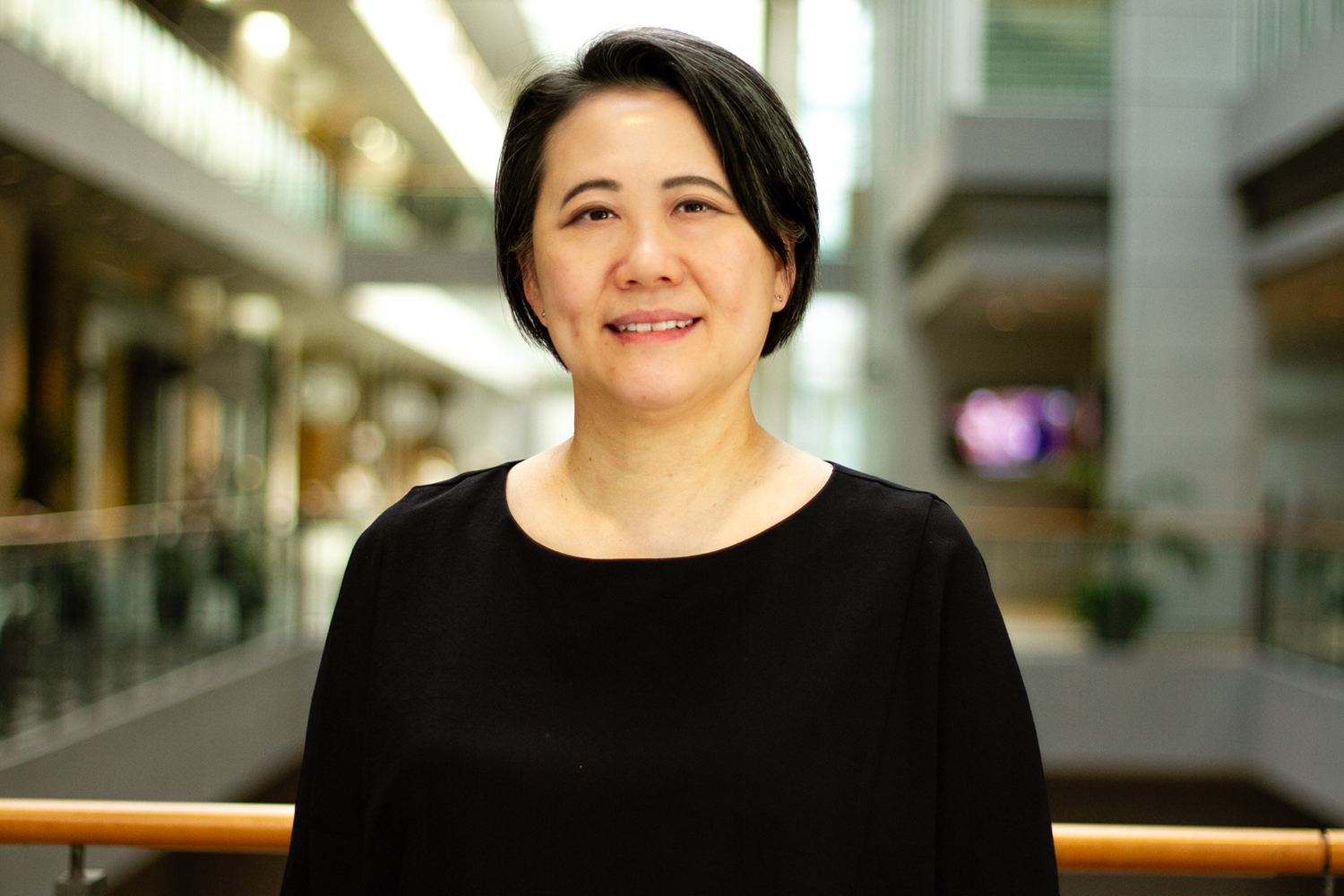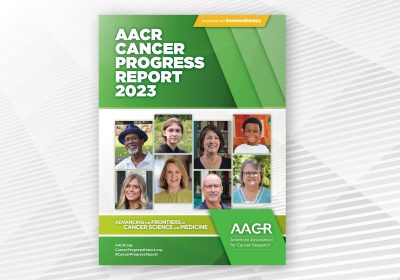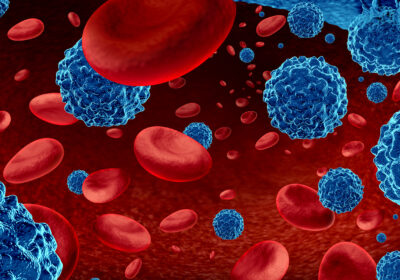
Dr. Lillian L. Siu: At the Leading Edge of Drug Development
For nearly three decades, the AACR president has been facilitating the development of novel cancer therapies and biomarkers for cancer patients.
Lillian L. Siu, MD, says she often feels like a new graduate of medical training, excited about what lies ahead, despite years of experience. “Inside, I don’t feel as if I have been in oncology for decades,” said Dr. Siu. “When I come to work, I get excited and think, ‘What’s ahead for me today? What can I learn?’”
Recently, Dr. Siu read about research on how the human brain and immune system communicate, including the brain’s effects on the immune system’s response to cancer. “I thought, ‘Wow, how can I set up some research work to help address this complicated phenomenon in patients?’ These are the types of questions that really make science interesting. I just cannot imagine doing a different job other than helping patients through science,” she said.
Dr. Siu’s enthusiasm and curiosity shine through when she talks about her clinical research. “I tell all of my [medical trainees] that you have to choose a vocation that makes you want to go to work every day,” she said. “Passion is something that you must have. You cannot truly train someone to be passionate about their work. For those of us who are in science and medicine, the curiosity and the passion drive us every day.”
Dr. Siu wears many hats in her day-to-day work. She is a professor of medicine at the University of Toronto in Ontario. At the Princess Margaret Cancer Centre in Toronto, she is clinical lead of the Tumor Immunotherapy Program, the director of the Phase I Clinical Trials Program, and a medical oncologist who cares for patients with head and neck cancer.
Dr. Siu was inaugurated as the president of the American Association for Cancer Research® (AACR) for 2025-2026 at the AACR Annual Meeting 2025, held April 25 to 30 in Chicago, succeeding Patricia M. LoRusso, DO, PhD (hc), who was the AACR president for 2024-2025. Dr. Siu is also a co-editor-in-chief of the AACR journal Cancer Research Communications and was elected a Fellow of the AACR Academy in 2024.
“Dr. Siu’s visionary leadership as a researcher and physician-scientist has led to transformative advancements in cancer research and patient care,” said Margaret Foti, PhD, MD (hc), chief executive officer of the AACR. “Moreover, her extensive service, sage leadership abilities, and sincere dedication to the AACR are truly remarkable and deeply appreciated by the entire AACR membership.”
Choosing Medicine Over Dentistry
Dr. Siu grew up in Hong Kong, the youngest by 10 years of five children. Her mother worked in the home and her father was an engineer for the largest cable company in Hong Kong. She attended English-speaking schools and, at age 14, her entire family immigrated to Toronto. Early on, she showed a proclivity for mathematics and the sciences. “I still remember building a massive double helix model out of candlesticks as a science project. We were tasked with building DNA models using different materials,” she recalled.
Dr. Siu integrated well into middle and high school in Canada—joining the student council and finding an outlet for her creativity as the yearbook art director and designer and decorator of the school bulletin boards. She excelled in academics but had to work harder in her English courses because it was her second language. But she put in the effort and received the English Literature Award in her last year of high school, which for her is still a “cherished achievement and testament to my dedication and ability to overcome challenges,” she recalled.
Several of her older siblings went into the dentistry field, and young Lillian considered following them. But she failed the ability tests for steady hands and working on a patient using a dental mirror. “Then I said, ‘Medicine it is!’ and it was the right choice!”
Pursuing Oncology
She entered the University of Toronto in 1985, completing two years of a prerequisite science course and then entering a four-year medical school at the same university—at a time when a college degree was not needed before transitioning to medical school. For Dr. Siu, medical school was enjoyable; she studied but was also socially active and
served on committees.
Her interest in oncology began when her mother was diagnosed with breast cancer in 1989. The future oncologist was a constant presence at Princess Margaret, where her mother was treated, accompanying her to check-ups and treatment appointments, and forming relationships with the nurses and medical oncology staff. “Experiencing my mother’s journey sparked my curiosity about what it would be like to be on the other side, providing care rather than receiving it,” she said.
Dr. Siu traded her non-oncology rotations with her fellow classmates for extra oncology ones. “In oncology, you are on call a lot more than in other departments, but I didn’t mind, as I wanted to do oncology,” she said.
After graduating from medical school at the University of Toronto in 1991, Dr. Siu completed her residency and then a fellowship in medical oncology, also at the University of Toronto, in 1996. She was interested in a career testing novel anticancer drug candidates in the clinic, but with no phase I clinical trial or drug development fellowships available in Canada, Dr. Siu discovered a new opportunity. In an oncology journal, she came across an advertisement for a fellowship on drug development at the University of Texas Science Center in San Antonio. A year later, in 1997, she was in San Antonio for the year-long fellowship, but in the gap year before that, one of her advisers, Malcolm Moore, MD, created a customized fellowship for her at Princess Margaret focused on phase II and III clinical trials, since at the time, phase I trials were uncommon there.
Dr. Siu’s interest in drug development deepened as she took part in the clinical trials at Princess Margaret: observing patients who participated in them, undertaking research investigations, and attending frequent clinical visits. After her experience in San Antonio, in 1998, Dr. Siu came back to the University of Toronto as an assistant professor and a medical oncologist at Princess Margaret Cancer Centre. One of her mentors likened the low rate of approval for experimental cancer drugs to “kissing many frogs to find a prince.” “This analogy motivated me to pursue [drug development], aiming to contribute my efforts toward improving these challenging odds,” she said.
Dr. Siu has been involved in early-stage trials of more than 50 drug candidates. One of her interests is the development of biomarkers—which can provide a window into early signs of treatment efficacy and toxicity and track tumor response or progression in the patient. A project Dr. Siu is particularly proud of is the development of ctDNA assays as a biomarker to check if a patient is responding to immunotherapy. ctDNA can be detected in the blood of most patients with cancer and can provide information on the cancer without an invasive biopsy. When a patient responds to immunotherapy, it is often a long-term, robust response that increases a patient’s lifespan, yet clinicians still don’t have the tools to predict who is more likely to respond to immunotherapy.
She and her colleagues initiated the INSPIRE phase II clinical trial in 2016. Ever since, they have been harvesting significant results on whether ctDNA can be used to predict response and relapse in patients treated with immune checkpoint inhibitors, a type of immunotherapy. The trial enrolled 106 patients with solid tumors who were treated with the immune checkpoint inhibitor pembrolizumab (Keytruda). Patients provided tumor biopsy samples pre-treatment and while on treatment and had their blood drawn to analyze ctDNA every three weeks while being treated. Initial results showed that ctDNA can be used as a tool to track patients’ responses and that clearance of ctDNA during treatment was associated with a longer survival time.
The initial ctDNA analysis from INSPIRE was performed using Natera’s Signatera assay and was published in Nature Cancer in 2020. These results showed that ctDNA can be used to accurately track and predict outcomes in solid tumor patients treated with pembrolizumab, and in part led to approval for Medicare coverage of ctDNA use in this setting. In 2024, Dr. Siu and her colleagues published a follow-up analysis in the AACR journal Cancer Discovery and reported on the use of a tumor-agnostic assay, cfMeDIP-seq. This assay did not require access to tumor samples to track methylation signals in ctDNA and was also able to predict outcomes to pembrolizumab using INSPIRE plasma samples.
Dr. Siu is also working on detecting minimal residual disease (MRD) using ctDNA and a new artificial intelligence platform to evaluate new therapies for their ability to eradicate MRD in patients. MRD represents the state when few cancer cells are left following definitive cancer treatment.
Dr. Siu has established a cohort called LIBERATE (Liquid Biopsy Evaluation and Repository Development at Princess Margaret), providing a common process for collecting blood and analyzing ctDNA for research projects. The cohort currently includes nearly 4,000 patients and 12,000 samples that are supporting ctDNA investigator-initiated projects, including how ctDNA samples can best provide information on patients’ responses to treatment.
“We are using our basic and translational learnings so much more now and applying these to new and better clinical trial designs and patient selection,” said Dr. Siu.
Dr. Siu had written about the changes in clinical trials from tumor-specific trials to tumor-agnostic basket trials that target specific molecular alterations before tumor agnostic trials had become a reality. “My interest is in forecasting and facilitating what is to come in clinical trials,” she said.
Most recently, she and colleagues, in a commentary, proposed ways to improve clinical trials, including advocating for incorporating more and better patient data such as biomarkers, including relevant data not generated as part of the trial, and using computational biology in what would be adaptive, patient-centric trials. Said Dr. Siu,
“I think this is not far away, perhaps a few years. That is my vision.”
Presidential Initiatives
Continue to boost the AACR’s global reach. “We already have 59,000 members in 143 countries, and that number increases every day. I would like to make sure that it continues,” said Lillian L. Siu, MD. Building on the work of her predecessor, Patricia M. LoRusso, DO, PhD (hc), Dr. Siu wants to continue Dr. LoRusso’s presidential goal of engaging young scientists and clinicians beyond North America and building a clinical trial infrastructure in African countries. She wants to build a leadership development program for early-career investigators to learn and hone their skills for interacting with colleagues and mentees. She will also be appointing a task force that focuses on increasing the engagement of surgical oncologists in the AACR’s programs and initiatives.
Support the AACR’s new clinical trial initiatives. As the AACR becomes more involved in the conduct of clinical trials, Dr. Siu serves as a member of the AACR Clinical Trials Advisory Council that is currently overseeing the design and implementation of a neoadjuvant biomarker-driven clinical trial for gastroesophageal cancers.





